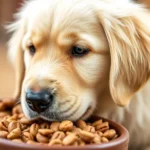
Introduction
Proper nutrition is essential for every dog, as it significantly impacts their health, energy levels, and longevity. For Shih Tzus, a breed known for its unique physical characteristics and temperament, understanding their dietary needs is crucial. These small yet spirited dogs often face specific health issues that can be influenced by what they eat. Therefore, it is vital for Shih Tzu owners to be well-informed about their pets’ nutritional requirements, including what is safe for them to consume, what should be avoided, and how to maintain a balanced diet.
Understanding Dog Nutrition Basics
Essential Nutrients for Dogs
To ensure the health and well-being of your Shih Tzu, it’s vital to understand the essential nutrients that make up their diet.
Proteins
Proteins are the building blocks of life, providing essential amino acids that support growth, repair tissues, and maintain a healthy immune system. Sources of protein for Shih Tzus can include high-quality meats such as chicken, turkey, and fish, as well as plant-based options like lentils and chickpeas.
Fats
Healthy fats are crucial for energy and the absorption of certain vitamins. Omega fatty acids, in particular, contribute to a shiny coat and healthy skin. Fish oil or flaxseed oil can be excellent sources of these essential fats.
Carbohydrates
While dogs do not require carbohydrates as a primary energy source, they benefit from digestible carbs and fiber. Ingredients like sweet potatoes, brown rice, and oats can provide the necessary energy and aid in digestion.
Vitamins and Minerals
A well-rounded diet must include essential vitamins and minerals, such as vitamins A, D, E, and B-complex, as well as minerals like calcium and phosphorus. These nutrients support various bodily functions, from bone health to immune system support.
How Nutrition Affects Shih Tzus
Maintaining a healthy diet is particularly important for Shih Tzus due to their predisposition to certain health issues.
Weight Management
Shih Tzus are small dogs, which makes them prone to obesity if overfed or given unhealthy treats. Managing their weight through portion control and a balanced diet is crucial for their overall health.
Health Issues
Common health problems in Shih Tzus related to diet include obesity, dental issues, and skin allergies. By providing a balanced and nutritious diet, owners can help mitigate these risks.
What Can Shih Tzus Eat?
Safe Foods for Shih Tzus
Understanding what foods are safe for your Shih Tzu is key to creating a healthy diet.
High-Quality Commercial Dog Food
Investing in high-quality commercial dog food tailored for small breeds is an excellent option. Look for brands that feature real meat as the first ingredient and avoid fillers like corn and wheat. Options include:
- Dry kibble: Provides dental benefits and is easy to measure.
- Wet food: Often more palatable and hydrating.
- Grain-free formulas: Good for dogs with grain sensitivities.
Homemade Diet Options
Some owners prefer to prepare homemade meals for their Shih Tzus. If you choose this route, ensure you include a balance of proteins, carbohydrates, and vegetables. Here are a few safe ingredients:
- Cooked chicken or turkey
- Brown rice or quinoa
- Steamed vegetables like carrots or green beans
Fruits and Vegetables
Many fruits and vegetables can be healthy snacks for Shih Tzus. Safe options include:
- Carrots: Great for dental health and low in calories.
- Blueberries: Antioxidant-rich and a tasty treat.
- Apples (without seeds): A crunchy snack packed with vitamins.
Proteins and Treats
When it comes to proteins and treats, opt for safe and healthy choices:
- Cooked chicken, turkey, or lean beef.
- Peanut butter (ensure it does not contain xylitol).
- Pumpkin: Supports digestive health and is safe in moderation.
Portion Control and Feeding Guidelines
Feeding your Shih Tzu the right amount is just as important as choosing the right foods.
Recommended Daily Intake
The daily caloric intake for a Shih Tzu typically ranges from 300 to 600 calories, depending on their age, size, and activity level. Puppies require more calories for growth, while seniors may need fewer calories to maintain a healthy weight.
Feeding Schedule
Establishing a regular feeding schedule helps regulate your Shih Tzu’s digestion and overall health. Most owners find that feeding their dogs twice a day works best.
Foods to Avoid
Toxic Foods for Shih Tzus
Not all human foods are safe for your Shih Tzu. It’s crucial to be aware of toxic foods that can cause serious health issues.
Common Toxic Foods
Some foods that are highly toxic to dogs include:
- Chocolate: Contains theobromine, which is toxic to dogs.
- Grapes and raisins: Can cause kidney failure.
- Onions and garlic: Harmful to red blood cells and can lead to anemia.
Human Foods to Avoid
Even some foods that seem safe can be harmful. Avoid giving your Shih Tzu:
- Alcohol: Toxic and can cause severe health issues.
- Caffeine: Found in coffee and tea, harmful to dogs.
- Foods high in fat: Such as bacon or fried foods, which can lead to pancreatitis.
Allergies and Sensitivities
Like humans, Shih Tzus can suffer from food allergies and sensitivities.
Common Allergens
Some ingredients that Shih Tzus may be sensitive to include:
- Wheat
- Dairy
- Soy
Signs of Food Allergies
Watch for symptoms such as itching, gastrointestinal upset, or ear infections. If you suspect your Shih Tzu has a food allergy, consult your veterinarian for an appropriate elimination diet.
Special Dietary Considerations
Age-Specific Nutrition
Shih Tzus have different nutritional needs at various life stages.
Puppies
During their growth phase, puppies require a diet rich in proteins and calories to support their development. Look for puppy-specific food that contains higher protein and fat levels.
Adult Shih Tzus
For adult dogs, focus on maintaining a balanced diet that meets their energy requirements. High-quality adult dog food will help keep them healthy without excess calories.
Senior Shih Tzus
Senior Shih Tzus may require specialized diets that focus on joint health and lower fat content. Look for senior formulas that include glucosamine and omega fatty acids.
Health Conditions and Dietary Needs
Certain health conditions common in Shih Tzus can necessitate dietary adjustments.
Obesity Management
If your Shih Tzu is overweight, consider switching to a weight management formula. Monitoring portion sizes and reducing treats can help them shed extra pounds safely.
Dental Health
Maintaining good dental hygiene is crucial for Shih Tzus. Look for dog foods formulated to promote dental health, or include dental chews in their diet.
Skin and Coat Health
If your Shih Tzu suffers from skin issues, consider foods rich in omega fatty acids. Ingredients like fish oil or flaxseed can improve coat health and reduce inflammation.
Tips for Transitioning Diets
Switching Foods Safely
Transitioning your Shih Tzu to a new diet should be done gradually to avoid digestive upset.
Gradual Transition
Start by mixing a small amount of the new food with their current food, gradually increasing the new food ratio over a week. This approach helps their digestive system adjust.
Monitoring Health
Keep an eye on your Shih Tzu during the transition. Look for any signs of digestive upset, such as diarrhea or vomiting, and consult your veterinarian if concerns arise.
Consulting a Veterinarian
When in doubt about your Shih Tzu’s diet, always consult a veterinarian. They can provide personalized advice based on your dog’s specific health needs and dietary restrictions.
Conclusion
Understanding what Shih Tzus can eat is crucial for ensuring their health and happiness. By focusing on high-quality ingredients and maintaining a balanced diet, you can help your Shih Tzu thrive throughout their life. Remember to be cautious of toxic foods and stay informed about their unique dietary needs as they age. Proper nutrition plays a significant role in fostering a joyful and healthy life for your beloved Shih Tzu.









